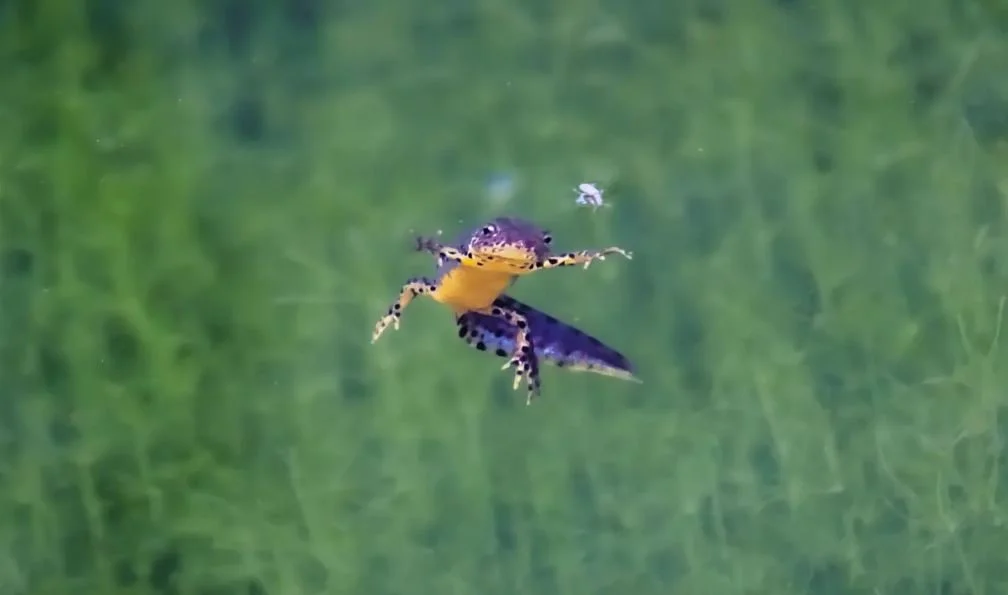Sad Little Newt Makes Friends In Michelangelo Land
The Apuan Alps in Tuscany, Italy, is world-renowned for its marble mines, with about 160 active quarries in the Massa Carrara and Lucca regions. The quarries, many of them decommissioned, are also home to the endangered Italian alpine newt (Ichthyosaura alpestris apuana), whose recent discovery here has mobilized the locals.
In November, Manuel Micheli, a photographer working with the environmental group Apuane Libere, came across the little newt in a nonworking quarry called Crespina 2, the Guardian reported. Closed since 2014, Crespina 2 is ideal for newt reproduction, with an underground spring and (quasi) natural filtration caused by marmettola, or marble dust waste.
“Last year, we counted at least three dozen newts in different life stages,” says herpetologist Gabriele Martinucci. “This was a sensational discovery because it means they live in the quarry throughout the entire year. It’s a demonstration that, even in places transformed by industrial activities, nature can give life to something that wasn’t there, such as the newts.”
Since the discovery, the scientific community – and the locals – have mobilized to protect the newts. Plans to reopen the quarry were halted earlier this month by Unesco and the Apuan Park.
Protecting these newts won’t come at the expense of sculpted marble. “Marble quarrying has nothing to do with art,” says Apuane Libere co-founder Gianluca Briccolani. “The well-known Carrara marble is no longer used to make the future Davids by Michelangelo, but ends up crumbled or, at most, in the kitchens and bathrooms of a very few rich people.” Crumbled into the calcium carbonate, for example, found in toothpaste.
More than just newts are being protected. The Apuan Alps are also home to about 30% of endemic national flora, including a rare cornflower that grows on the slopes of Mount Borla. But it’s the newts that have become a symbol of the endangered fauna and a rallying point for the humans who would protect them.
Photo credit: Manuel Micheli






